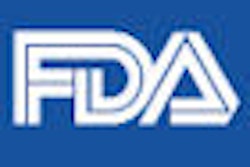Editor's note: Dr. Doniger's column, Dental Diaries, appears regularly on the DrBicuspid.com advice and opinion page, Second Opinion.
Driving past O'Hare airport in Chicago this week, I saw a sign that had United Airlines claiming they were No. 1 in on-time arrivals. What a great marketing concept. On my occasional forays to the now less-than-comfortable arena of air travel, I do like when the airline has documentation that they operate on time.
As dentists, we do try to be on time. Time management is a key practice builder. We have our well-planned-out schedule (regardless if it is managed per time, per procedure, or per production), and we do our best to maintain our time. Yes, on occasion the unexpected procedure goes awry or a lost temporary needs to be replaced, but for the most part we operate on a schedule of appointments that happen on time.
Then there are the patients who have their own schedule. We all have them. You know who I'm talking about. They have a specifically scheduled appointment (don't all of our patients have these?). They are reminded of the time via appointment cards, phone calls, e-mails, or text messages. They know the time is reserved exclusively for them. But still they arrive on their own time, often up to 30 minutes late. If a patient does not show up, even after confirmation, there may be the rare accident or health crisis that comes into play. We do become concerned.
We recently have had a few "regular" late folks. They are really great patients (they do pay their bills), but they consistently arrive late. I have heard some of the most amazing excuses. One woman just couldn't get up on time. Another was delayed due to a longer exercise class. We have tried to build time into patient reminders for that extra 30 minutes. Some days they work, some days they don't.
One of our favorite patients always arrives late for his 8:00 a.m. appointment. Most of the time, he has no excuse, just moseys on in anywhere from 10 to 20 minutes late each time. We usually complete all of his treatment during the truncated appointment time, but we still have that waiting time.
In this economy, we are thrilled to have patients in the chair to treat. We do appreciate patients who come on time because their treatment time length will affect the rest of the day's schedule. When one patient comes late, there is a domino effect for the rest of the day. We are thankful that the majority of our patients have cell phones that allow us to inform them of unexpected changes to our schedule. We don't enjoy making those phone calls because we do not want to give the patient an opportunity to change their appointment time. But what to do?
A wise practice management woman once said, "Our best patients are those who come in and pay us." How do we both politely and firmly request that this small group of patients, who are coming in for their appointments and paying their bills, abide by their scheduled time? We notify our patients that the time is reserved exclusively for their oral care needs. If they have any problems or issues, we ask them to please give us 48 hours' notice to change the schedule. If lateness is habitual, we will request they arrive 20 to 30 minutes early and indicate it on their appointment card.
For the most part, that strategy works. We say that we always appreciate a phone call (if possible) if there is excessive traffic or a child care issue. For the patient who says, "I was stuck in the line at Starbucks," we ask if they remembered us, too. When the patients do not call and we are looking for them, it makes things a little more difficult. On rare occasions, we do have to cancel the patient when they arrive late, if their treatment will take too long. For the most part, they understand. For those who do not, we explain how this change in our schedule will delay the remaining patients of the day.
On days when we have more than one habitual latecomer scheduled, my team just grins and works through it. We like the day to flow, but we do know Murphy and his laws. Some days, it just isn't going to happen.
Sheri Doniger, D.D.S., practices clinical dentistry in Lincolnwood, IL. She has served as an educator in several dental and dental hygiene programs, has been a consultant for a major dental benefit company, and has written for several dental publications. Most recently, she was the editor of Woman Dentist Journal and Woman Dentist eJournal. You can reach her at [email protected].
The comments and observations expressed herein do not necessarily reflect the opinions of DrBicuspid.com, nor should they be construed as an endorsement or admonishment of any particular idea, vendor, or organization.
Copyright © 2010 DrBicuspid.com



















